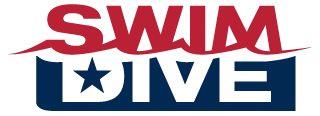Legislative Updates: What do you need to know? THIS!
Just as February and March are busy times for championships, January has been a busy month for the NCAA. Here is a quick rundown of issues we’ve been tracking and that our members should be aware of:
Long Course Trials at NCAA's
There will be long course invitationals held following the Division II and III Championships. Division II/Open Meet Information | Division III Meet Information
Legislative Waivers Issued
The NCAA Committee for Legislative Relief approved waiver requests related to student-athletes preparing to qualify for or compete at Olympic Trials. Our most sincere thanks to The Pac 12 Conference, Queens University of Charlotte, Emory University and Williams College for shepherding waivers through the process. The waivers can be downloaded here: Division I | Division II | Division III I Time Standards
NCAA Legislation
Elite Athlete Support
This month the NCAA Council approved two proposals designed to support elite athletes. Proposal 2019-107 permits individuals designated by the USOPC or NGB to receive developmental training expenses related to sport experts, training partners, and travel. Proposal 2019-121 further enables elite athletes (as designated above) to work with their coaching staff above and beyond the 20-hour cap. Full Text of 2019-121 (Training) and 2019-107 (Expenses)
We are generally supportive of any effort to support our elite student-athletes, but do have concerns about the definition of ‘elite’. Given the later development of several national-team athletes (Andrew Wilson, Haley Anderson, Emily Escobedo, Shaine Casas), we will need assistance from USA Swimming to help the USOPC craft the broadest-possible definition of ‘elite’ in order to prevent our next generation of national teamers from being denied these opportunities.
Restrictions on Camps and Clinics
In April the NCAA Division I Council will vote on Proposal 2019-52. This proposal would limit schools to holding camps and clinics during the summer (June, July, and August) and December 15-February 1st. If passed, 2019-52 could have a crippling effect on teams that utilize camps and clinics for the purpose of community outreach, fundraising and supplementing staff salaries. Beyond the impact to team’s budgets and coaches’ salaries, Proposal 2019-52 would also prevent thousands of children from receiving swimming lessons from their local teams and sever an important link between an institution and its community.
For many of our most-vulnerable teams, camps and clinics are the single-most-important source of funding. This proposal would exacerbate the problem of recruiting and retaining coaches in an environment where fewer than one in four Division I programs even employs a full staff. At worst, Proposal 2019-52 will lead to the elimination of teams, training trips and other opportunities for student-athletes.
Please make sure you communicate this to your appropriate administrator and/or your SWA. In all likelihood, 2019-52 will create unnecessary challenges while providing little-to-no relief for the sport of swimming & diving (as the proposal suggests).
Read the CSCAA’s Position on These Issues
Name Image and Likeness
In late October the NCAA’s Board of Governors voted unanimously to permit student-athletes to benefit from the use of their name, image and likeness, “in a manner consistent with the collegiate model.” Consistent with its past history, the NCAA’s action (or inaction) is reactive, coming on the heels of California’s passing of the “Fair Pay To Play Act.” At this point thirty-four states have introduced legislation on this issue with eighteen on the books and eight set for implementation on July 1st.
Individually, swimmers stand to benefit to varying degrees from the coming changes in three areas. A waiver process already permits many student-athletes to use their NIL to promote their own work product, particularly when not related to athletics. The working group looks to expand on this in ways that will enable student-athletes to further monetize this through lessons and clinics. Group licensing is also expected to move forward. These are sport- or campus-wide agreements entered into by all student-athletes. The most common examples cited include trading cards or video games. Already, OneTeam Partners, backed by both the NFL and MLP players associations, has invested $300 Million into this space. While the fiscal benefits for swimmers and divers will be modest, these agreements would effectively bind the interests of Olympic sports to those of football and basketball.
The third, and most difficult, aspect of NIL is individual licensing. In this environment, agents, not the institutions, or unions, manage the enterprise. Given the role of recruitment in intercollegiate athletics, it is the aspect that is makes the likelihood of compensation for athletic participation (or performance) the greatest. Examples of this abuse are rampant, (most recently the FBI’s investigation into basketball).
Of greater concern is the impact of NIL on the broader sponsorship model. SB-206 prohibits athletes to have sponsorships that conflict with their schools’ sponsorships. That means, that some schools where 300+ sponsors are commonplace (including several endemic sponsors) the individual market is, at present, non-existent. This will not be the case, however as endemic sponsors see a greater ROI from smaller investments into several “influencers” than their current support of coaches, teams, and bodies like the CSCAA.
These shifts in investments are not catastrophic but will require that the college swimming community work to remain relevant and valuable to each of our stakeholders – institutions, athletic departments, donors, parents, USA Swimming. Of greater concern is the deteriorating relevancy and public perception of the NCAA. At the very least we will see greater autonomy for the Power Five conferences. This will mean better resources (nutrition, personnel) for our marquee programs while widening the gap between the have’s and have-not’s.
